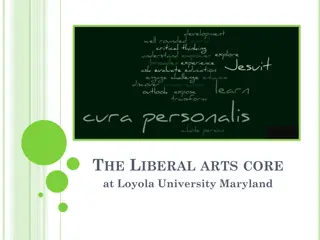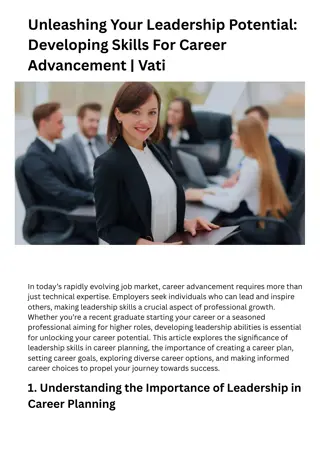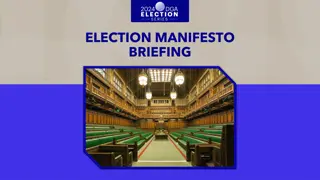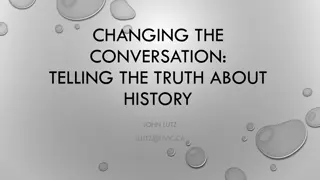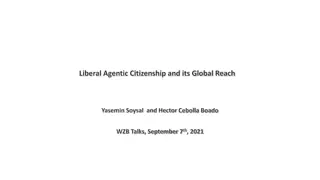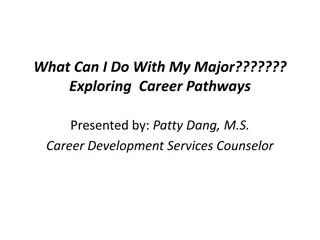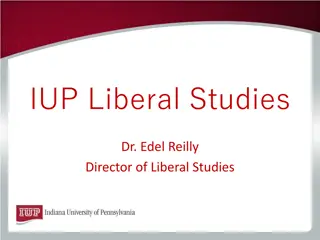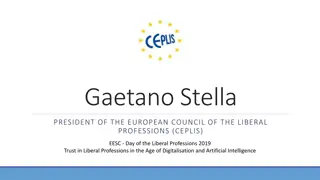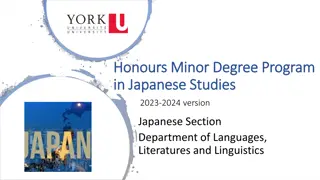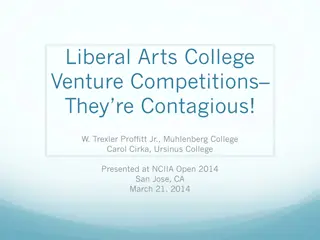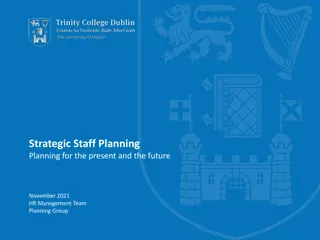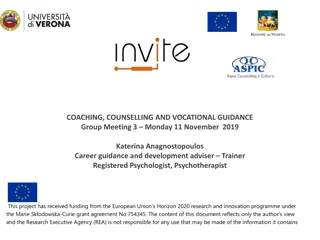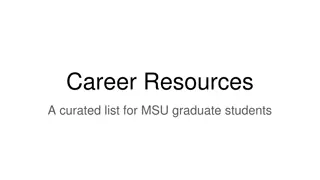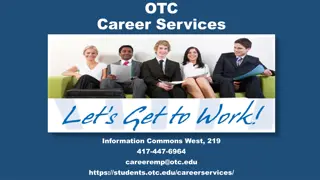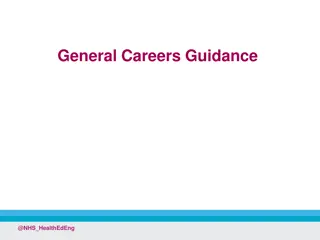Exploring the Role of Liberal Studies in Career Planning
Delve into how liberal studies courses can enhance career planning by providing a broader perspective on societal values, workplace diversity, and economic changes. Employers seek individuals with cultural competence and the ability to build professional relationships. This information can sharpen career decision-making, especially in the face of rapidly changing socio-economic forces. Explore new career metacognitions and strategic planning for a successful career journey.
Download Presentation

Please find below an Image/Link to download the presentation.
The content on the website is provided AS IS for your information and personal use only. It may not be sold, licensed, or shared on other websites without obtaining consent from the author.If you encounter any issues during the download, it is possible that the publisher has removed the file from their server.
You are allowed to download the files provided on this website for personal or commercial use, subject to the condition that they are used lawfully. All files are the property of their respective owners.
The content on the website is provided AS IS for your information and personal use only. It may not be sold, licensed, or shared on other websites without obtaining consent from the author.
E N D
Presentation Transcript
Careering in a Changing World
Role of Liberal Studies Courses Courses that involve learning broadly about things that make us what we are and the world about us what it is How do these courses relate to career planning? What are some examples?
Liberal Studies Courses & Employers Research says organizations want students who have the ability to work with a wide range of cultures Highest-rated ability for new hires: Building and sustaining professional working relationships
Liberal Studies Courses & Careers Pyramid of Information- Processing Domains General education courses provide knowledge about work options and the changing workplace In terms of the CASVECycle: General education courses help you learn about and clarify societal gaps to which you might want to dedicate your career prioritize values used in your career decisions
New Career Metacognitions How can I use this information about the sociology of work, economic changes, workplace diversity, and alternative work styles to sharpen my PCT career metacognitions, and become a more effective career decision maker? How does this information relate to my: gender? cultural or ethnic group? Religious preferences or spirituality? identification with my community?
New Career Metacognitions How will this information affect my careering as I finish school, look for a good job, make plans for a significant personal relationship or family, and undertake job changes (voluntary or forced)? How can I develop a strategic plan for my career in light of the powerful, rapidly changing socioeconomic forces affecting persons today?
Two Career Metaphors Sailing your career ship: What are the conditions? Macrolevel forces to consider? Roe s formula for occupational choice: How do these elements-- E, B, C, F, & M shapes one s career? (see Table 1.1)
Having a Successful Career What does this mean to you? How do you define success?
Four Macro-Level Career Factors Technology & the global economy Organizational culture H How might each ow might each of these impact of these impact your career? your career? Alternative ways of working Career and family roles
Strategic Career Thinking Formulating a vision of success Doing the right things in your career Implementing a plan to do things right in your career Consider internal & external forces How do these ideas contribute to career success and your PCT?



